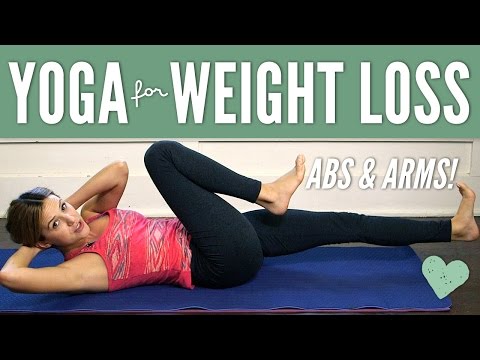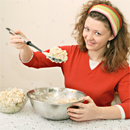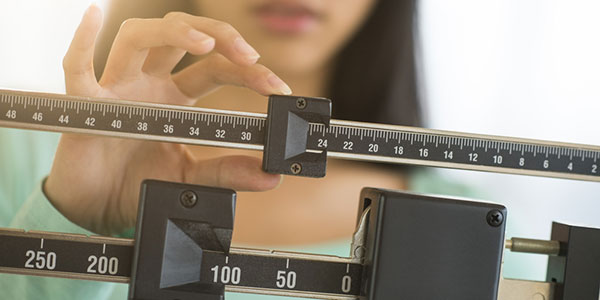10 Dietitians Share Their Struggles With Healthy Eating
We all know how hard it can be to eat healthy in your world of delicious diet disasters but we try as hard as we can to be perfect. To never fail. We get advice from dietitians all the time and expect we will be able to follow it to the letter. But the truth is, that is nearly impossible. Even dietitians have trouble. We may expect them to be above reproach but it is important to remember that they are only human, too. If anything, knowing they aren’t perfect should make their advice even more valuable — they too know how hard their advice can be to actually follow!
Here are 10 confessions from actual dietitians that confirm this fact:
1. “I have a serious sweet tooth.”
“I have a weakness for chocolate, especially plain M&Ms and any milk chocolate with caramel, nuts or peanuts. Chocolate displaces other foods that can provide me with more nutrition and fewer calories. After three kids, these extra calories add a few pounds quickly. I really try to have healthy snacks planned and avoid purchasing chocolate for the house. ”
– Toby Amidor, registered dietitian nutritionist and author of “The Greek Yogurt Kitchen: More Than 130 Delicious, Healthy Recipes for Every Meal of the Day”
“I need to control my sweet tooth. I tend to eat chocolate, and once I eat one, it’s hard to stop. Unfortunately, I end up beating myself up over it and it can lead to a cycle of over-exercising to try to burn off the excess chocolate calories. I should probably get rid of all sources of chocolate and go cold turkey for a month. Then, I should slowly add it back to my diet to see if I have control over it. If not, I just can’t have it around.”
– Tara Collingwood, registered dietitian nutritionist and sports nutrition expert in Orlando, Florida
“I could definitively afford to eat fewer sweets. Because too much added sugar crowds out more nutrient-rich foods in the diet, I try to keep portions small and indulge in sweets less often. Capping intake of added sugar to about 100 or 200 calories daily is a rule of thumb that can keep me on track without feeling deprived.”
– Elisa Zied, registered dietitian nutritionist and author of “Younger Next Week”
Hey, no one's perfect! Click To Tweet2. “I don’t eat enough vegetables.”
“[I wish I could] make half my plate vegetables at dinner! I often give this advice to my clients – it’s a fantastic way to cut down on calories and add loads of nutrients to your diet. While I do this sometimes, I could definitely do it more often. The best reminder for me is to pick up extra bags of quick cook vegetables, both fresh and frozen, when I go grocery shopping. This way, when I see the veggies in my fridge or freezer, I’ll build the meal around them.”
– Patricia Bannan, registered dietitian nutritionist and author of “Eat Right When Time is Tight”
“I need to eat more fresh vegetables and a greater variety of them. Consuming lots of veggies has been linked to lowering the risk for many chronic diseases such as heart disease, Type 2 diabetes and some types of cancer. Getting creative in the kitchen could definitely help. I should find recipes that make cooking and eating veggies fun and delicious, helping me to incorporate them into my diet on a much more consistent basis.”
– Jim White, registered dietitian nutritionist, spokesman for the Academy of Nutrition and Dietetics and American College of Sports Medicine Health Fitness Specialist
3. “I’m not the best meal planner.”
“I need to do a better job of planning my meals. While I know planning ahead is the best way to ensure that the food I’m feeding myself and my family is nutrient-rich, the reality is, it often gets lost in the shuffle. Between work and running between school and activities with my girls, I find myself wondering, “What’s for dinner?” at 5:30 p.m. I really need to take time out during the weekend to plan and cook some of the week’s meals in advance. I should make an effort to stock my freezer with healthy soups, casseroles and marinated proteins so that when I’m truly time-crunched, I have a healthy option that’s ready to heat and serve!”
– Lisa Drayer, registered dietitian nutritionist and author of “The Beauty Diet”
4. “I don’t eat enough fish.”
“Fish is one of the easiest foods to cook that provides an array of beneficial nutrients such as protein, healthy fats, selenium and other vitamins and minerals. And while it is one of my favorite foods to eat when I’m at a restaurant, I rarely cook it at home. That means I’m missing out on the recommended two to three servings (or 8 to 12 ounces) of fish per week. Whether I buy fresh, frozen or canned fish, it’s time I stocked up and started adding more tuna, salmon, grouper, shrimp, scallops and other favorites to my meals.”
– Holley Grainger, registered dietitian nutritionist and food and nutrition blogger at Holley Grainger Nutrition
5. “I should put a cork in the wine.”
“The one thing I could do better is to avoid drinking too much wine in the evening. I try to keep it to one glass each night, but somehow, mysteriously, that glass gets itself refilled most nights! For optimal health, it’s best to stick with the official definition of “moderate alcohol consumption,” which is one glass of wine a day for women. My advice to myself is to just pour a half glass and sip it s-l-o-w-l-y. This way, I can have one refill without going overboard.”
– Ellie Krieger, registered dietitian nutritionist, TV personality and award-winning cookbook author
6. “My breakfasts aren’t the most balanced.”
“I often get in my kitchen early to develop recipes. My recipe testing results sometimes become my breakfast and they aren’t always well-balanced. I really need to make it a point to eat a nutritiously-sound morning meal no matter what. I especially need to make sure I’m getting ample protein. I should enter “Eat a ‘real’ breakfast!” daily into my e-calendar – this technique does the trick for me with exercise!”
– Jackie Newgent, registered dietitian nutritionist, chef and author of “The All-Natural Diabetes Cookbook”
7. “I have a salt tooth.”
“It’s not something that I am proud of, but it’s sadly true: I have a salt tooth. For me, the best part of the margarita isn’t the liquid, but rather the salt around the rim of the glass. Both the aging process and excessive added salt in your diet can increase your blood pressure, which can lead to heart disease and stroke. Tomorrow, I am going to toss out those little salt packets that I have stashed in office desk drawer and go salt-free at lunch. I feel my blood pressure dropping already.”
– Joan Salge Blake, registered dietitian nutritionist, clinical associate professor at Boston University and author of “Nutrition & You”
Ah, yes. The struggle is real for us all.
Do you share these same challenges? For some help on how to navigate these struggles, check out the BodyRock Meal Plan. Not just a 30 day menu planner, this plan comes with a detailed nutrition guide and an added recipe book with over 70 offerings!
Source: U.S. News
-
“Weight” Until You Try These Handy Suggestions For Shedding Pounds!
It’s important to not give up when trying to drop pounds.
-
Diabetes Symptoms And Possible Complications
Diabetes mellitus is an endocrinal condition which is associated with
-
7 Excuses For Not Starting Up Your Weight Loss Diet
Changing habits is one of the most difficult challanges we human being
-
Five Little Known Ways to Boost Your Metabolism
by Keith Woolley You may have heard that if you boost your metabolism
-
Best Weight Loss Diet Plan
Simple weight loss diet plans seem to ha
-
Cheat Your Way Thin
Cheat your way thin. The good old cheat
- DON'T MISS
- Where Diets Go Wrong
- Revealed: The Critical Weight Loss Industry Facts You Should Know
- Why Breakfast Is So Important When Dieting
- How to Target and Reduce Body Fat
- Make Some Healthy Living Choices To Lose Weight
- Weight Loss For Dummies
- How Much Exercise Needed for Maximum Weight Loss?
- Resistance Train Your Quadriceps To Strengthen Your Lower Limbs
- Timing Is Everything Part 3
- Lose Weight By Giving Up Carbs? It Might Just Work For You




